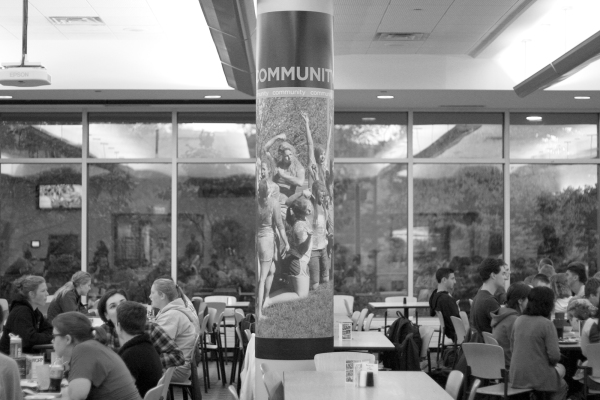 Society may be pushing inclusion too far. As social justice grows in popularity, conversation often brings up words and concepts centered on diversity, inclusion, and justice. These concepts are great, and most the time are employed in an effort to make the world a better place, but what are the limits to the employment of these ideas? Is it possible to be too inclusive?
Society may be pushing inclusion too far. As social justice grows in popularity, conversation often brings up words and concepts centered on diversity, inclusion, and justice. These concepts are great, and most the time are employed in an effort to make the world a better place, but what are the limits to the employment of these ideas? Is it possible to be too inclusive?
It’s odd to think a group could be too inclusive, but in recent news there is controversy surrounding the practices of some college administrations that are pushing student organizations to be more inclusive.
In September, Wesleyan University, a private liberal arts college in Middletown, Connecticut, informed its residential fraternities that they must admit all women as members and residents in order to promote better equity and inclusion. There are only two residential fraternities on Wesleyan’s campus, and their relationship with the school has been tumultuous.
Yet, what is the point of this move? Will integrating those of female gender into housing really solve problems, or will it cause more problems? What about the fraternities’ identity on campus? Many fraternities focus on values such as brotherhood, and the idea of brotherhood seems to be exclusively about the bonds between males. Forcing the fraternities to accept women into their midst may undermine the values upon which they were founded.
“It’s odd to think a group could be to inclusive, but in recent news there is controversy surrounding the practices of some college administrations that are pushing student organizations to be more inclusive.”
As a member of a fraternity myself, and former co-leader of the M-Pact Halftime retreat, I can speak to the benefits of having an all-male environment on occasion. It’s relaxing and beneficial to have a place to talk and open up without worrying about what members of the opposite sex might think and knowing that others there have your back.
Where guys can be guys in a true and genuine way without having to conform or worry about being the stereotypical male that the media portrays. Bringing the opposite sex into these environments for a lot of guys would change the dynamic and safety of these spaces.
Another questionable case of pushing too hard for inclusiveness on college campuses is happening at California State University (CSU), following the example of Vanderbilt and Rollins College. CSU revoked the official club status of the InterVarstiy Christian Fellowship Groups across its 32 campuses. This is because InterVarsity requires its members to affirm a Christian doctrinal basis, thus excluding those who choose not to affirm the basis of the organization.
At Vanderbilt, Graduate Christian Fellowship was kicked off campus for similar reasons. Graduate Christian Fellowship required those eligible for election to its leadership roles to endorse the group’s constitutive religious principles.
This might not seem like a big deal, and it even may seem like the right thing for colleges and universities to be doing. Why should anyone be excluded from a group? Christian organizations should let anyone join, regardless of whether or not they choose to affirm the group’s doctrinal basis. And Fraternities and Sororities shouldn’t discriminate based on gender when it comes to their membership and housing.
If these groups are founded on principles and values that are so exclusive, such as brotherhood, then perhaps it’s for the better that these groups change who they are and what they’re about.
But what happens when a group becomes inclusive of absolutely everyone? It loses its identity. Including everyone in a club or organization ultimately makes it impossible for the organization to establish a cohesive group identity among it’s constituents.
Take a College Republican group for example. What if they’re forced to allow Democrats in? It can be really constructive and beneficial to have dialogue between Republicans and Democrats, but if every meeting is a debate or back and forth discussion over politics, it isn’t a College Republican group anymore, it’s a debate society.
Likewise, for any group, forcing them to allow members into leadership positions or into intimate group settings that don’t share the same values and beliefs that they do is damaging to the cohesion of the organization and people within it.
Looking at Gustavus’ Nondiscrimination policy, it’s hard to tell what the school has to say. “It is the policy of Gustavus Adolphus College to comply with all laws and regulations governing the provision of equal employment and equal educational opportunities…” Gustavus makes sure when it comes to employment and education opportunities that it takes a stance and effort to combat discrimination. When it comes to student organizations though, there isn’t much being said.
Student and student organizations in general at Gustavus are a welcoming and inclusive bunch, and so far there hasn’t been much of an uproar or controversy over any organizations inclusiveness.
That doesn’t mean it couldn’t happen in the future though. As new organizations are created every year, and the culture at Gustavus changes over time, there may come a day when the question has to be asked, how inclusive is too inclusive?
If a group doesn’t want to allow certain individual members in because of fundamental ideological differences, it seems they have the right keep their exclusiveness in order to preserve their identity. At the same time, where do we draw the line between being exclusive and discriminatory?
Perhaps it’s when conflict arises between individuals within a group because of differences in relation to the group’s fundamental principles and bases.
Wherever we as a community draw the line, I hope we can respect individual identities without compromising those of communities and organizations.
-Matthew Glasier
